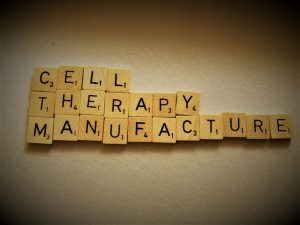Thermo Fisher Scientific will develop manufacturing processes for cancer cell therapies in collaboration with Lyell Immunopharma.
The deal – financial terms of which were not provided – will focus on improving the “fitness” of T cells from which cell therapies are produced according to the firms.
A T-cells metabolic “fitness” describes the likelihood it can be turned into a cell therapy.

Cell therapies need to be fit because of the high metabolic demands of tumor cells can negatively impact their functioning by competing for nutrients within the tumor microenvironment (TME).
Various studies (here and here for example) indicate T cells taken from patients early in disease exhibit better fitness than those from patients with advanced disease.
Commercial chances
According to Elizabeth Homans, president of Lyell Immunopharma, the collaboration aims to give cell therapy developers a better chance or manufacturing success.
“Addressing critical fail points in the development and commercialization of cell therapies requires specialized technologies and capabilities that complement our own,” she said.
“Thermo Fisher offers the ideal combination of cell manufacturing technologies and as-needed capacity to enable accelerated product development and growth.”
The collaboration will emerging and existing technologies to improve the robustness and consistency of manufacturing according to Thermo, which added the deal has provisions for further collaboration in supply chain and commercialization pathways.
Cell therapy investment
News of the deal follows just months after Thermo ramped up its efforts in the cell therapy manufacturing space.
In March the firm said it would open a cell therapy development and manufacturing collaboration centre in Princeton, New Jersey as part of a $475 million investment in its biopharma capabilities.
Thermo also supplies reagents and materials to cell therapy developers. In 2017, for example, the firm signed a supply deal with June Therapeutics under which it provides activation reagents used in the manufacturing of its chimeric antigen receptor T cell (CAR T) therapies.
